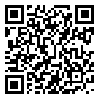Volume 15, Issue 1 (Spring 2011)
Physiol Pharmacol 2011, 15(1): 108-115 |
Back to browse issues page
Download citation:
BibTeX | RIS | EndNote | Medlars | ProCite | Reference Manager | RefWorks
Send citation to:



BibTeX | RIS | EndNote | Medlars | ProCite | Reference Manager | RefWorks
Send citation to:
Zendehdel M, Keramati K, Garavand S. Effect of intracerebroventricular injection of olive leaf extract on PTZ-induced seizures in male rats. Physiol Pharmacol 2011; 15 (1) :108-115
URL: http://ppj.phypha.ir/article-1-660-en.html
URL: http://ppj.phypha.ir/article-1-660-en.html
Abstract: (15877 Views)
Introduction: Olive leaf contains anti-inflammatory and COX-2 inhibitor compounds. Considering the role of the
COX enzyme in seizures, this research was performed to assess the effects of this extract in treatment of seizures
induced by PTZ.
Methods: In this research, male Wistar rats (200±20 g) were injected intra-cerebroventricularly with 1 μl saline or
olive leaf extract (125 μg, 250 μg and 500 μg), before the intraperitoneal administration of PTZ (80 mg/kg) for
induction of seizure. Then, seizure score and onset times of every stage of seizure were recorded during 20 minutes
after PTZ administration. The data was analyzed by one-way analysis of variance (ANOVA) and non parametric tests.
Results: Result of this research showed that the injection of 125, 250 and 500 μg of olive leaf extract had no effect
on the onset time of seizure stages 1, 2 and 3 compared to the control group (P>0.05). However, they significantly
decreased the onset time of seizure stages 4 and 5 compared to the control group (P<0.05). On the other hand, olive leaf
extract decreased onset time of generalized (tonic-clonic) seizures, but had no effect on partial seizures. Different doses
of olive leaf extract had no effect on seizure scores.
Conclusion: Olive leaf extract has convulsive property and this effect is time and dose dependent.
Type of Manuscript: Experimental research article |
Subject:
Others
| Rights and permissions | |
 |
This work is licensed under a Creative Commons Attribution-NonCommercial 4.0 International License. |





